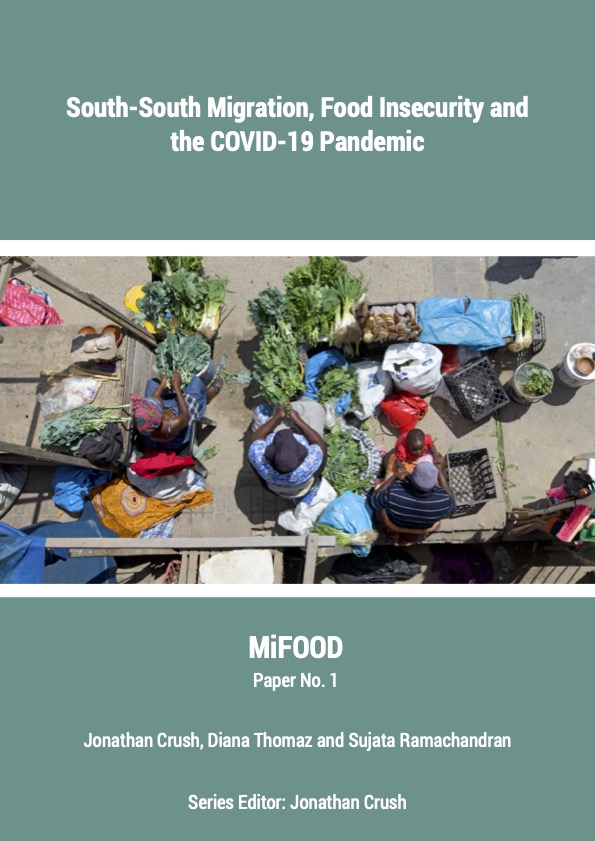The implementation of global migration governance processes such as the 2030 Sustainable Development Agenda and the Global Compact for Migration has been stalled by the COVID-19 crisis as flows of and opportunities for international migrants shrink through the containment strategies adopted by most governments in response to the pandemic. Migrants have been disproportionately affected by COVID-19 and the policies taken in response to the pandemic, with higher risk of exposure to the virus, greater likelihood of working in sectors that have experienced major economic downturn, lower rates of access to social support mechanisms and health care, and increased vulnerability to poverty and food insecurity. This paper examines the ways in which the globalized migration regime has been disrupted and reconfigured by COVID-19 and argues for urgent research and policy attention. It explores how the pandemic has affected migrants’ food security and how food insecurity might impact migration flows. The authors conclude that a concerted evidence-based response to the crisis of immobility is urgently needed.

